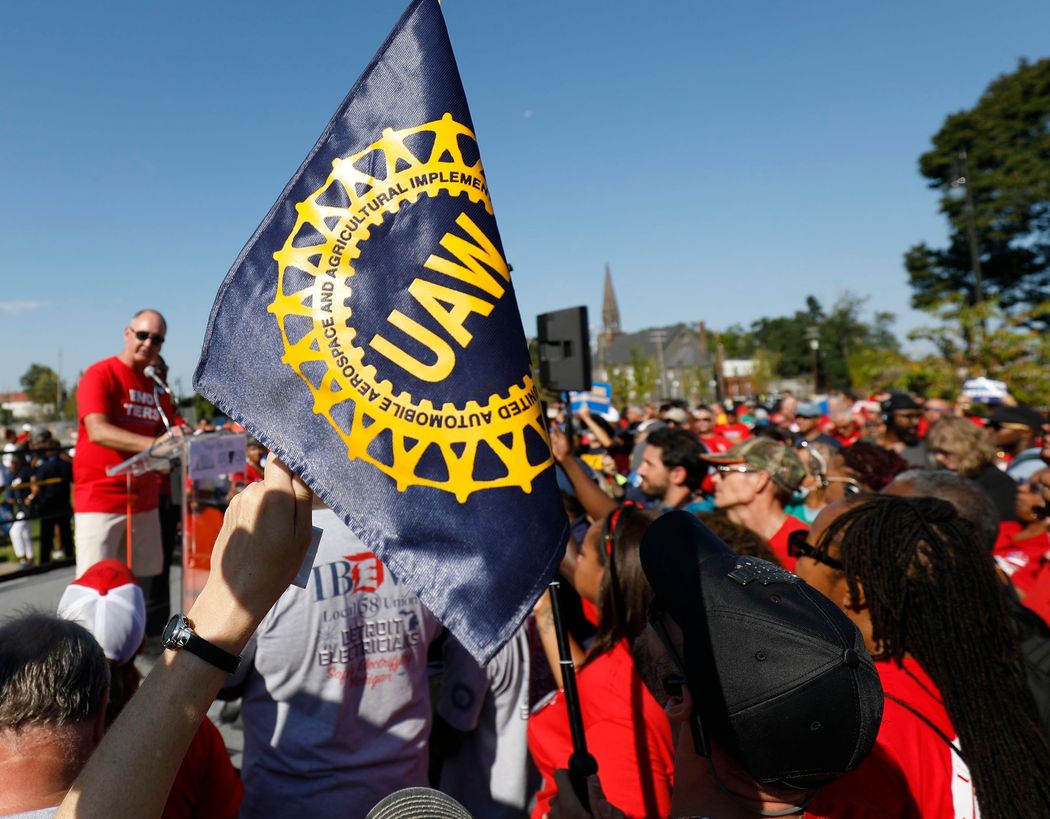
Will Ebeler is a student at Harvard Law School.
In this weekend’s news and commentary: updates from UAW’s strike, Dartmouth College athletes file petition to unionize, visual effects artists at Marvel Studios unanimously vote to unionize, and California’s legislature passes a variety of pro-worker bills.
There are two updates this weekend on UAW’s targeted strike against Ford, General Motors, and Stellantis. On Saturday the union resumed negotiations with the companies and announced that it had “reasonably productive conversations with Ford.” It made no mention of GM or Stellantis. Also, Ford and GM have begun temporary layoffs at non-striking plants. On Friday, Ford sent home 600 workers at one Michigan plant, and GM announced that 2,000 workers will be laid off from a Kansas plant sometime early this week. According to the companies, the striking workers produce goods that the laid off workers would need to continue working. UAW’s President Shawn Fain said that laid off workers would continue to have an income and that the companies’ announcement was an attempt “to put the squeeze on our members to settle for less.” And according to NPR, although companies typically give at least partial pay to non-striking workers that are laid off because of supply chain issues such as these, Ford and GM have announced there will be no partial pay.
Last week, the Dartmouth College men’s basketball team filed a petition to unionize. All 15 players on the team signed the petition to be represented by the Service Employees International Union. Their petition is the most recent in a wave of recent efforts by college athletes to assert their rights. A former Villanova football player has filed a lawsuit claiming that college athletes are employees; the NCAA is facing a class-action lawsuit over use of college athletes’ name, image, and likeness in television broadcasts; and Brown University basketball players sued the Ivy League earlier this year to challenge its practice of not awarding athletic scholarships. Observers have drawn comparisons between Dartmouth players’ organizing efforts and an early attempt by college athletes to unionize. In 2014, Northwestern University football players attempted to organize but the Board ultimately dismissed their petition. In that case, Northwestern was a private university playing in a league (the Big Ten Conference) that included public schools. The Board argued that recognizing Northwestern’s players when it did not have jurisdiction over the other schools in the league would create an uneven labor arrangement. By contrast, because all Ivy League schools are private, there isn’t a similar rationale for rejecting Dartmouth’s players union. However, observers were cautious to note that there will be several challenges before the players can unionize, including the undecided issue of whether the athletes are employees.
Next, visual effects artists at Marvel Studios voted unanimously to unionize, according to a statement by the International Alliance of Theatrical Stage Employees. Thomas Barnard, a VFX coordinator for Marvel, said that the unionization will increase “the quality of storytelling through our work” and is a step towards “taking care of the unsung individuals who helped to build the industry.” VFX artists at Walt Disney Pictures are also holding a unionization election, with results expected to be announced sometime next month. As the LA Times reports, this is a “challenging” time for VFX artists. Studios have come to increasingly rely on CGI for movies and shows, and employees have described long hours and difficult working conditions.
Finally, California’s legislature was busy voting on several pro-worker bills in the final days of its legislative session. Last week, Michelle and John discussed bills that would provide unemployment benefits to workers on strike and that would establish a $20 minimum wage for fast-food workers. The unemployment bill was passed by both houses of California’s legislature and is now being considered by Governor Newsom. In addition to those bills, on Tuesday, the legislature passed Senate Bill 553 which would require most employers to maintain a log of incidents of workplace violence and investigations, train employees on how to report incidents, and allow any employee to petition for a restraining order. Although early versions of the bill also included a provision prohibiting employers from requiring untrained employees to confront active shooters or suspected shoplifters, that provision was removed in the final version. Also on Tuesday, the legislature passed Assembly Bill 1356, which would require that employers give employees 75 days’ notice before any mass layoffs. Under current California law, employers must give employees 60 days’ notice before mass layoffs, and X Corp is currently facing litigation alleging that it failed to provide adequate notice of its layoffs in the past year. Other bills passed by California’s legislature include SB 616, which would require employers to provide employees with five days of sick leave (California law currently requires three days), and Senate Bill 403, which would prohibit discrimination against employees based on their caste.






Daily News & Commentary
Start your day with our roundup of the latest labor developments. See all
July 1
In today’s news and commentary, the Department of Labor proposes to roll back minimum wage and overtime protections for home care workers, a federal judge dismissed a lawsuit by public defenders over a union’s Gaza statements, and Philadelphia’s largest municipal union is on strike for first time in nearly 40 years. On Monday, the U.S. […]
June 30
Antidiscrimination scholars question McDonnell Douglas, George Washington University Hospital bargained in bad faith, and NY regulators defend LPA dispensary law.
June 29
In today’s news and commentary, Trump v. CASA restricts nationwide injunctions, a preliminary injunction continues to stop DOL from shutting down Job Corps, and the minimum wage is set to rise in multiple cities and states. On Friday, the Supreme Court held in Trump v. CASA that universal injunctions “likely exceed the equitable authority that […]
June 27
Labor's role in Zohran Mamdani's victory; DHS funding amendment aims to expand guest worker programs; COSELL submission deadline rapidly approaching
June 26
A district judge issues a preliminary injunction blocking agencies from implementing Trump’s executive order eliminating collective bargaining for federal workers; workers organize for the reinstatement of two doctors who were put on administrative leave after union activity; and Lamont vetoes unemployment benefits for striking workers.
June 25
Some circuits show less deference to NLRB; 3d Cir. affirms return to broader concerted activity definition; changes to federal workforce excluded from One Big Beautiful Bill.